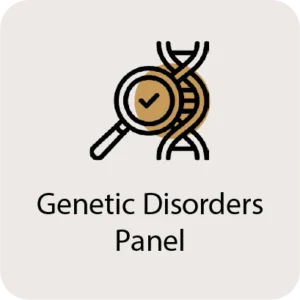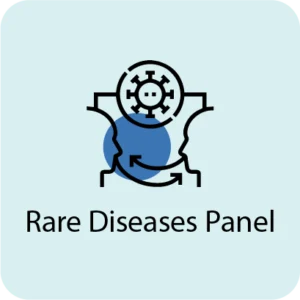Microbiome
The microbiome is known as the vast and diverse community concerning microorganisms. It shall inhabit various parts of the human body, which shall be about playing a crucial role in sustaining health and supporting various physiological functions. Comprising bacteria, fungi, viruses, and other microorganisms, the microbiome. It is a dynamic ecosystem that shall evolve throughout an individual’s life.
The human body is not merely an organism. It is a complex ecosystem that shall be about teeming with trillions of microorganisms collectively known as the microbiome. This is an intricate network of bacteria, fungi, viruses, and some other microbes that coexist harmoniously. Others shall influence our health in ways that are only beginning to comprehend. As one delves into the fascinating world of the microbiome, one can further simply uncover those profound impacts on digestion, immunity, and overall well-being.
Microbial Key Players
Various key genera shall all hold significance in the microbial ensemble. Other Bacteroides, for instance, are well crucial for simply breaking down complex carbohydrates in the gut. Meanwhile, the presence of beneficial strains including Akkermansia muciniphila has been associated with enhanced metabolic health.
Future Perspectives
As research into those microbiomes advances, the potential for targeted interventions and therapies grows. Further, some of the precision medicine, shall all focus on individual microbiome profiles, holding those promise for addressing a range of health conditions, right from gastrointestinal disorders to immune-related diseases.
The Human Microbiome
Composition
Some of the human microbiome is distributed across several body sites, which includes the skin, respiratory tract, oral cavity, gastrointestinal tract, and genitourinary system. Each region harbors a distinct microbial community. This condition contributes to the overall diversity of the microbiome.
Diversity
Microbiome diversity is well essential for optimal health. A rich and varied microbial ecosystem shall help in supporting various metabolic processes and aiding in digestion, and it all plays a pivotal role in immune system function. The interplay of various microbial species shall all help in influencing the resilience and adaptability of the microbiome.
Factors Influencing Those Microbiome Composition
Various factors shall all impact the composition and diversity of the microbiome. This includes genetics, lifestyle, diet, environmental exposures, and some antibiotic use. Further, understanding these influences, shall all help in guiding efforts for marinating a balanced and healthy microbiome.
Gastrointestinal Microbiome
Role in Digestion
The gastrointestinal (GI) microbiome, which is about those residing primarily in the intestines, is integral to digestive processes. This shall all assist in breaking down complex carbohydrates, and synthesizing vitamins while contributing to the absorption of nutrients.
Immune System Interaction
The GI microbiome shall interact closely with the immune system, influencing development and responsiveness. This is a well-balanced gut microbiome that contributes to immune system maturation and it provides protection well against pathogens.
Gut-Brain Axis
Emerging research highlights the bidirectional communication that lies between the gut and the brain, called the gut-brain axis. The gut microbiome shall all play a role in modulating mental health, stress responses, influencing mood, and cognitive function.
Personalized Microbiome Health
Microbiome Variability
Individuals must also exhibit those unique microbiome profiles which are later influenced by genetics, environmental factors, and some personal history. Further taking into account those variability is a must for tailoring interventions. This shall later support individualized microbiome health.
Probiotics and Prebiotics
Probiotics are beneficial microorganisms that might occur when it is well consumed, and they might quite well positively influence that microbiome. These Prebiotics, on the other hand, are known to be good substances that can be about promoting the growth of beneficial microbes. This shall also help in incorporating both into one’s diet which can further contribute to a healthier microbiome.
Holistic Approach to Microbiome Care
Recognizing the intricate relationship that lies between that microbiome and overall health. A holistic approach might all help in involving also promoting those practices that support microbiome balance. This also includes adopting a diverse and plant-rich diet, which shall minimize unnecessary antibiotic use. It shall be about managing stress, and incorporating probiotics and prebiotics when it is quite well appropriate.
General Overview of the Microbiome
Aestuariispira
Aestuariispira insulae is a neon for being genus associated with marine environments. The role of this is human health shall be about less explored, and some of its presence in certain environments shall be incidental too.
Bacteroides
Some of the other things that shall fall under this section are well common components of the human gut microbiome. Some of that abundance is known for being well crucial in digestion and the synthesis of vitamins. An imbalance in those populations of such microbiome is well associated with conditions including inflammatory bowel disease (IBD).
Deltaproteobacteria
The condition is also known as a class of bacteria with diverse roles. Some of these members, including Desulfovibrio, are well associated with those sulfate reduction in the gut, and dysregulation. This condition shall be well linked to conditions like ulcerative colitis.
EscherichiaShigella
Escherichia coli is a common member of those gut microbiota. Some of the strains can be pathogenic, which can lead to gastrointestinal infections. Monitoring E. coli levels is just so important for assessing gut health.
Klebsiella
Klebsiella species are just so normal kind of inhabitants of the human gut, but some of the strains can usually lead to infections. Some of the imbalances might be well associated with urinary tract infections and pneumonia.
Lactivibrio
A condition like Lactivibrio is a genus that might be about playing a role in fermenting lactate in the gut. Its significance in health or disease shall need further research.
Paenibacillus
Some of the Paenibacillus shall be well species that are just so common about those soil bacteria. While they might be usually non-pathogenic, their role in the human microbiome is just not well-documented.
Peptoniphilus
Peptoniphilus species are known as a part of the normal flora in the oral cavity, urogenital tract, and intestines. Imbalances shall be well linked to infections, which shall be especially in those immunocompromised individuals.
Microbiome
Acinetobacter
Acinetobacter condition is well found in soil and water. Some of the strains can leave infections, particularly in those healthcare settings.
Actinobacteria
Actinobacteria are known to be crucial for soil health, but their particular role in the human gut microbiome is usually less understood. Some of those genera within this phylum, including Bifidobacterium are well considered to be beneficial.
Aggregatibacter
Aggregatibacter actinomycetemcomitans is all well associated with those periodontal conditions. Its presence might be well linked to those oral health issues.
Akkermansia
Some of the Akkermansia muciniphila is well associated with a healthy gut. It improved metabolic health. Further, it shall lower levels which are all linked to conditions including obesity.
Bacteroidales
Bacteroidales are known as those diverse orders of bacteria in the gut. It shall be about contributing to digestion and the breakdown of complex carbohydrates.
Clostridium
Clostridium species might all have those diverse roles, which shall have the fermentation of fiber in the colon. Some might need Clostridium difficile, which leads to infections.
Coprococcus
Some of these Coprococcus species are known to be part of the normal gut microbiome. This shall contribute to the fermentation of dietary fiber.
Erysipelotrichaceae
These Erysipelotrichaceae family members are well associated with those conditions including obesity and inflammatory bowel diseases.
Fusobacterium
Fusobacterium species are just so common in the oral cavity but it can be pathogenic in some of the certain settings, which shall contribute to those infections.
Lactobacillus
Conditions like Lactobacillus species are well common and are well used as probiotics and contribute to gut health by producing lactic acid. They are well associated with those fermented foods.
Prevotella
Prevotella species are well part of the oral and gut microbiota. Their abundance might be well associated with that diet and gut health.
Ruminococcus
Some of those Ruminococcus species are important fiber degraders in the gut. Their abundance is well associated with a plant-rich diet.
Streptococcus
Streptococcus species are well diverse, and some are well associated with dental health, while others might also lead to infections.
Weissella
Weissella species are well under those lactic acid bacteria that are found in fermented foods. They might further contribute to gut health.
General Overview of the Microbiome
The Microscopic World Within Us
The human body is known to be the home to trillions of microorganisms collectively. It is known as the microbiome. Such an intricate ecosystem encompasses bacteria, fungi, viruses, and other microbes, which play a pivotal role in sustaining overall health. As a well-dedicated healthcare provider, we recognize the importance of understanding and further caring for such a diverse community that resides within us.
Key Players in the Microbial Symphony
Within that microbiome, some of the genera, like Klebsiella, Bacteroides, and Peptoniphilus, shall all contribute to the intricate balance of our microbial community. Such organisms, though usually unnoticed, play crucial roles in conditions like immunity, digestion, and overall well-being.
Conditions Observed:
Several imbalances in Bacteroides populations might all be well linked to inflammatory bowel disease (IBD).
Klebsiella species, which might be about those normal inhabitants of the gut, might lead to infections if imbalances occur.
Peptoniphilus, part of that normal flora, can lead to infections in those specific circumstances.
Microbiome Health
The Symphony of Microbial Harmony
The microbiome’s composition is well dedicated to that symphony, with each microbe that shall play a unique instrument. As a healthcare provider, we aim to support and optimize this symphony for the benefit of your health.
Understanding Microbiome Diversity
Diversity within the microbiome is well-needed. It influences conditions like nutrient absorption, digestion, and immune function. Monitoring and further promoting microbial diversity are well-needed aspects of sustaining a balanced and resilient microbiome.
Conditions Observed:
Lowered microbial diversity is well associated with autoimmune diseases, gastrointestinal disorders, and allergies.
Dysregulation in well-sulfate-reducing bacteria including Desulfovibrio might further contribute to conditions including ulcerative colitis.
Holistic Microbiome Care: Our Commitment to Your Well-being
Personalized Microbiome Health
Further on recognizing the individuality of each microbiome, we do provide personalized interventions that are well-tailored to your unique microbial profile. Our healthcare professionals offer guidance on sustaining a healthy balance based on those specific needs.
Proactive Measures for Optimal Health
Our commitment while extending those beyond treating illnesses shall be proactively promoting optimal health. By further emphasizing those lifestyle factors, responsible antibiotic use, and a plant-rich diet, one shall empower you to nurture a thriving microbiome.
Conditions Observed:
Chronic stress, poor sleep, and an unhealthy diet can negatively impact that microbiome, which further contributes to inflammation.
Overuse of those antibiotics can simply disrupt the microbiome, which shall lead to conditions like Clostridium difficile infection.
As healthcare providers might all commit to holistic well-being, we shall all recognize the importance of that microbiome in shaping health outcomes. Our main goal is to simply empower you with knowledge, personalized guidance, and some sort of proactive measures to foster a resilient and thriving microbiome. Together, let us all embark on a journey towards optimal health by further unlocking those mysteries of the internal microbial universe.
Some of the bacterial taxa are known to be a part of the complex microbial communities in various environments. This shall all include the human body. Further, understanding their roles and interactions is well crucial for comprehending the dynamics of that microbiome and its impact on health and other similar conditions.
As one dedicated healthcare partner, we assure to stand beside you on your microbial journey. On further offering comprehensive General and Microbiome health assistance, one shall strive to empower you with the knowledge and tools that are needed for a vibrant and resilient microbiome. Together, let us all embark on a path toward enhanced well-being through the nurturing care of your internal microbial world.
| Categories | Conditions Observed |
|---|---|
| General | Aestuariispira |
| Bacteroides_nordii | |
| Deltaproteobacteria | |
| EscherichiaShigella | |
| Klebsiella | |
| Klebsiella_variicola | |
| Lactivibrio | |
| Murimonas | |
| Paenibacillus | |
| Pelotomaculum | |
| Peptoniphilaceae | |
| Peptoniphilus | |
| Microbiome | Abiotrophy |
| Acidaminococcaceae | |
| Acidaminococcus | |
| Acinetobacter | |
| Actinobacteria | |
| Actinobacteriaphylum | |
| Aestuariispira insulae | |
| Aggregatibacter | |
| Aggregatibacter actinomycetemcomitans | |
| Akkermansia | |
| Alistipes shahii | |
| Anaerofilum | |
| Anaerotruncus | |
| Anaerotruncus colihominis | |
| Anaerotypes | |
| Atopobium | |
| Bacilli | |
| Bacteroidales | |
| Bacteroides | |
| Bacteroides caccae | |
| Bacteroides dorei | |
| Bacteroides thetaiotamicron | |
| Bacteroidetes | |
| Barnesiellaceae | |
| Bifidobacterium | |
| Bifidobacterium angulatum | |
| Bifidobacterium catenulatum | |
| Blautia | |
| Blautia coccoides | |
| Blautia_glucerasea | |
| Blautia_stercoris | |
| Blautiagenus | |
| Burkholderiales | |
| Butyricicoccus Pullicaecorum | |
| Butyricimonas | |
| Butyricimonas paravirosa | |
| Butyricimonas paravirosa | |
| Butyricoccus | |
| Carnobacteriaceae | |
| Choriobacteriaceae | |
| Clostridium | |
| Clostridium IV | |
| Clostridium celerecrescens | |
| Clostridium difficile | |
| Clostridium xylanovorans | |
| Clostridium_cellulolyticum | |
| Clostridium_propionicum | |
| Coprococcus | |
| Coprococcus eats | |
| Corynebacterium Jeikeium | |
| Cyanobacteria | |
| Desulfovibrio | |
| Dialister | |
| Dialister invisus | |
| Dorea | |
| Eggerthella | |
| Eggerthella sinensis | |
| Enterobacteriaceae | |
| Erysipelothrix | |
| Erysipelotrichaceae family; Erysipelotrichales order; Erysipelotrichia class | |
| Erysipelotrichales | |
| Erysipelotrichia class, Erysipelotrichales order, Erysipelotrichaceae family | |
| Eubacterium | |
| Eubacterium Eligens | |
| Eubacterium ruminantium | |
| Euryarchaeota | |
| Faecalibacterium | |
| Faecalibacterium prausnitzii | |
| Firmicuts | |
| Fusobacterium | |
| Gammaproteobacteria | |
| Gordonibacter | |
| Gordonibacter pamelaeae | |
| Holdemania | |
| Klebsiella variicola | |
| Lachnobacterium | |
| Lachnospira | |
| Lachnospiraceae bacterium 1 1 57FAA | |
| Lachnospiraceae noname | |
| Lactivibrio alcoholicus | |
| Lactobacillales | |
| Lactobacillalesorder | |
| Lactobacillus | |
| Lactobacillus acidophilus | |
| Lactococcus lactis | |
| Lenta | |
| Lentisphaerae | |
| Leuconostoc | |
| Listipes | |
| Marinilabiliaceae | |
| Megamonas | |
| Megamonas rupelensis | |
| Methanobacteriaceae | |
| Methanobrevibacter | |
| Micrococcaceae | |
| Mogibacterium | |
| Murimonas intestini | |
| Negatives | |
| Oscillating | |
| Oscillibacter | |
| Peptoniphilus Asaccharolyticus | |
| Peptostreptococcaceae | |
| Phascolarctobacterium | |
| Phylum Proteobacteria | |
| Porphyromonadaceae | |
| Prevotelella | |
| Prevotella bivia | |
| Pseudobutyrivibrio | |
| Rhizobiales | |
| Rikenellaceae | |
| Rosebury | |
| Ruminococcus | |
| Ruminococcus flavefaciens | |
| Ruminococcus gnavus | |
| Ruminococcus obeum | |
| S_Clostridium_citroniae.chr1 | |
| S_Clostridium_hathewayi.chr12 | |
| S_Clostridium_innocuum.chr12 | |
| S_Clostridium_symbiosum.chr13 | |
| S_Lactococcus_phage_P680.chr11 | |
| S_Streptococcus_mutans.chr2 | |
| Selenomonadals | |
| Slackia | |
| Sporacetigenium | |
| Streptococcaceae | |
| Streptococcus | |
| Sutterellaceae | |
| Tenericutes | |
| Victivalaceae | |
| Victivallis | |
| Victivallis vadensis | |
| Weissella | |
| Xylanisolven Bacteroides |
What factors can impact the composition and diversity of the microbiome?
Factors that can impact the composition and diversity of the microbiome include diet, lifestyle, medications (such as antibiotics), stress, age, genetics, and environmental exposures.
What is genetic testing for the microbiome, and how does it work?
Genetic testing for the microbiome involves analyzing the genetic material (DNA or RNA) of microorganisms present in a sample, such as stool or saliva. This analysis provides insights into the composition, diversity, and function of the microbiome.
Who should consider undergoing genetic testing for the microbiome?
Individuals with gastrointestinal issues, autoimmune diseases, allergies, skin conditions, metabolic disorders, or other health concerns. It might consider undergoing genetic testing for the microbiome to gain insights into their microbial profile and potential risk factors.
What specific information does genetic testing for the microbiome provide?
Genetic testing for the microbiome provides information about the types of microorganisms present in the sample, their relative abundance, diversity, functional capabilities, and potential associations with health or disease states.
How can genetic testing for the microbiome benefit individuals?
Genetic testing for the microbiome can benefit individuals by providing personalized insights into their microbial profile, identifying potential imbalances or dysbiosis, guiding dietary and lifestyle interventions, and informing targeted therapies or probiotic treatments.















































































